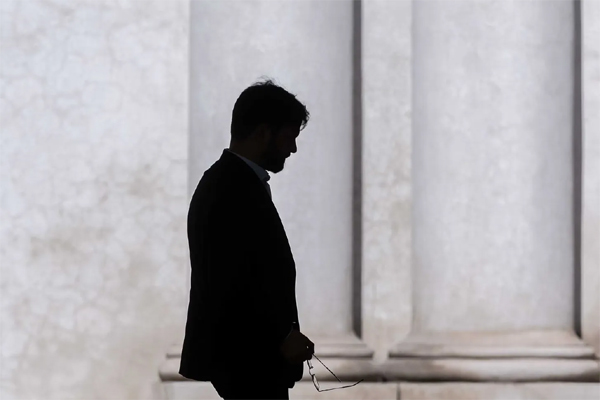
Chile marked the fiftieth anniversary of the coup d’état that overthrew President Salvador Allende, yesterday. Before the restoration of democracy in 1990, more than 40,000 people became victims of torture, political imprisonment, execution or “forced disappearance.” (Guardian)
President Gabriel Boric gave a speech outside La Moneda, the presidential palace bombed by the army during the coup and where Allende died. “Problems with democracy can always be solved … and a coup d’état is never justifiable – nor is endangering the human rights of those who think differently,” said Boric. “It is time to make up for these absences, correct the faults, repair the damage [and] project ourselves beyond our pain.”
The message was pointed, in a country where “a significant number of people, according to numerous polls, believe the 1973 coup was justified, and that Pinochet, who died in 2006, was a good leader who helped to modernize the country,” reports the Associated Press.
Further, only a quarter of Chileans are interested in the anniversary, and nearly 70% believe it is an issue that divides the country, according to a Pulso Ciudadano-Activa Research poll. (El País)
A march honoring victims on Sunday was marred by acts of violence — another example of how the legacy of the coup and the country’s relationship with democracy remain fraught, report Al Jazeera. (See yesterday’s post.)
“Decades later, the left and the right still exchange blame for the breakdown of democracy. Far from the promises of “never again” pronounced by some military leaders, some on the right justify the coup and play down the human rights violations that followed. This month, right-wing opposition leaders refused to sign a government-sponsored commitment to democracy and declined to participate in official anniversary events,” reports the New York Times.
The rightwing Unión Demócrata Independiente party issued a statement saying that the coup d’état was “inevitable”.

More Chile
- “Because Allende’s unique experiment—the first time in history that a revolution did not resort to armed struggle to impose its views or eliminate its adversaries—had captured the world’s imagination, our defeat, and the savage repression that followed it, wielded an outsize influence far beyond the borders of what could be expected from a small, remote country at the far edge of the Southern Hemisphere,” writes Ariel Dorfman in The Nation.
- Brazilian diplomat Celso Amorim writes about the impact Allende’s election had on progressives from the region, en El País.
- Chile is often seen as “a textbook case of Cold War anti-Communist machinations, but this perspective has tended to overshadow the ways in which Chile is also a study in resistance to autocracy,” writes Ruth Ben-Ghiat in the Atlantic.
- Five former political prisoners return to the sites of their confinement — Reuters photo-essay.
- Thousands of people attended a concert at the Estadio Nacional de Chile yesterday — where victims of the dictatorship were tortured and executed — El País.
- “The strategy of disappearance is so shocking and difficult to comprehend because the violence is rationalised, professionalised and calculated. It is never random, even if its targets appear to have been arbitrarily selected. Its currency is emotional fear that infects the population like a virus, creating a climate of suspicion and betrayal,” writes Brad Evans in The Conversation.
- “Investigations in the mid-1970s into the U.S. role in Chile also led to unprecedented legislation — sometimes enforced, sometimes not – designed to ensure greater Congressional oversight of U.S. covert operations and to curb U.S. military and other assistance to governments and armies that abuse fundamental human rights,” reports Responsible Statecraft, which has an interview with Peter Kornbluh.
Regional Relations
- Some U.S. Democratic lawmakers have backed calls to declassify information regarding U.S. support for the coup and the Pinochet dictatorship. Two-hundred years after the Monroe Doctrine, there is appetite among U.S. progressives “for a bold shift in our foreign policy,” write David Adler and Misty Rebik in a Guardian op-ed.
- Hemispheric cooperation, critical for environmental protection, can only be obtained “from a foundation of trust – and that trust can only be won through transparency about the past actions of the US government that continue to haunt our neighbors,” they write. (Guardian)
- Brazilian President Luiz Inácio Lula da Silva backtracked on comments suggesting his Russian counterpart, Vladimir Putin, could attend a summit in Rio de Janeiro next year without fear of arrest due to an International Criminal Court warrant. (See yesterday’s post.) The issue lies with the justice system, not politicians, he told the press yesterday. (Guardian)
- Lula is asking for a meeting of leaders from the European Union and Mercosur to decide on a trade deal this year, during his presidency at the South American bloc, reports Bloomberg.
- Venezuelan President Nicolás Maduro arrived in Beijing today ahead of a meeting with China’s Xi Jinping, reports AFP.
Ecuador
- Ecuador has, in recent years, “experienced a nightmarish descent into violence, with successive governments proving unable to rein in organized crime factions,” reports the Guardian. Security is a major campaign issue ahead of a presidential runoff vote next month.
El Salvador
- El Salvador’s incarceration rate is the highest in the world: 1.6% of its population is behind bars, according to the latest official data released by the Bukele administration. The country’s prison population has tripled to 100,000 in less than two years under an ongoing state of emergency, reports Bloomberg.
Mexico
- Seventy years after Mexican women obtained the right to vote, the country is on path towards its first female president — journalist Gabriela Warkentin analyzes with gender and discrimination specialist Leticia Bonifaz in El País.
Migration
- Dominican President Luis Abinader announced a freeze on new visas for Haitians and threatened to close the border between the two countries in the midst of tensions over a canal affecting the Massacre River. (Al Jazeera)
- The US Regional Processing Centers are looking to “speed up processing significantly, with the goal of reducing it to a matter of months,” but “critics fear the centres may leave asylum seekers waiting in unsafe conditions abroad, vulnerable to the very dangers they fled,” reports Al Jazeera. (Via Americas Migration Brief.)
- A new Jesuit Network with Migrants report explores forced migration across the region, arguing that advances in terms of responsive legal frameworks, including for asylum and refuge, “suffer from being more declarative than operative.” (Via Americas Migration Brief.)
Haiti
- Haitians strongly favor the deployment of an international force to help the country’s police fight criminal gangs. But they also believed that the Armed Forces of Haiti can help, according to two polls conducted within months of each other by a business alliance group, reports the Miami Herald. It is an option the U.S. is “statutorily prohibited” from assisting, however.
Guatemala
- Guatemalan president-elect Bernardo Arévalo’s unlikely campaign was lifted by the collective memory of the “Guatemalan spring,” a 10-year democratic window between military dictatorships starting in 1944, “kept alive by a generation who guarded the historical memory of a free and open society through decades of war, genocide, corruption, and impunity,” reports The Intercept.
Argentina
- Argentine presidential candidate and Economy Minister Sergio Massa announced exemptions from income taxes for millions of workers a dramatic effort to capture votes in the midst of a crushing financial crisis, reports Bloomberg.
Colombia
- The area planted with coca bushes in Colombia reached a record high last year, according to the latest United Nations Office on Drugs and Crime report, which said that potential coca production had risen by 24% since 2021. (BBC)
Jordana Timerman / Latin America Daily Briefing
http://latinamericadailybriefing.blogspot












